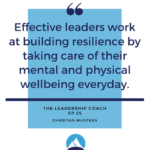You Are A Leader: Is It Hard To Get People To Follow?

 This has been a turbulent year: An impeachment, COVID19, Black Lives Matter protests, riots, Capitol Hill Occupied Protest, etc.
This has been a turbulent year: An impeachment, COVID19, Black Lives Matter protests, riots, Capitol Hill Occupied Protest, etc.
Opinions and perspectives vary. But each issue shares one thing in common: A lack of trust in authority. Or, phrased differently, distrust of leaders.
Distrust of authority, especially centralized authority, is a sentiment as old or older than the United States. Our system of government was designed with this distrust in mind.
We have a culture of individualism. But its roots may not be so much about the perceived preeminence of the individual. Instead, it may be more about a deep suspicion of domineering leaders.
How do you lead in a culture of distrust?
Despite the distrust, people still want leaders. In fact, in contract with some of the language you hear, when you look at actions, you see that people naturally move towards leaders.
But they want a certain kind of leader.
There is a recognition that leaders are necessary to provide a level of stability, safety, and order that would otherwise be lacking.
Leaders provide focus and join people together to build, maintain, create change, or accomplish what otherwise would not be.
People are looking for someone they trust.
Service not position
Robert Greenleaf, who coined the term servant leadership, differentiated it this way:
Some people are “leader-first leaders.” They aspire to be a leader – and will only serve others as long as it helps them achieve this position. Their most important goal is to be the leader.
Others are “servant-first leaders.” They primarily aspire to see others grow or flourish – and they accept leadership as the best tool to help accomplish this. Their most important goal is to see others benefitted.
Leader-first leaders engage in power dynamics. Power is about pushing or forcing someone to move in a direction.
When someone leads through power – there is often a zero-sum element: For one person’s power to increase, another’s must decrease.
Servant-first leaders are motivated to benefit others as they pursue a common direction or vision. When someone is engaged in a true servant-first leadership dynamic, the question isn’t about power at all.
Paradoxically, a servant-first leader will often find that their influence expands as they grow both the power and autonomy of those they lead.
Regardless of your positions on the issues I mentioned above: It’s a fair analysis to say that each situation is somehow tied to the rejection of leader-first leadership – real or perceived.
In most cases, those hoping to replace a leader-first leader, are only offering another form of leader-first leadership.
Even for owners
This is even true for someone who owns a business. Yes, ownership provides the owner with power. And there is nothing wrong with that. (Power is not wrong. Issues only emerge depending on the nature of use.)
But in my 17 or so years of consulting experience, the owners who are both the most successful and experience the least amount of drama, are ones who are still guided by servant-first perspective.
This is a no brainer. Which leader do you believe is able to generate higher loyalty and performance?
The four questions every follower asks every leader
There are four simple questions that people will ask a leader. They may not articulate them as such. But inside of each individual, there is a little subconscious checklist, looking for answers to each of these questions:
1) Do you care about me and those I care about? If they perceive the answer is “no” then you only have two options to motivate this individual: Transactional (Am I getting enough out of this to justify what I have to give up?) or Coercive (I’ll lose something or something bad will happen if I don’t follow.) Both methods are expensive, difficult to maintain, and produce lower results.
Conversely, if the answer is, “Yes,” then people will often go to great lengths to reciprocate.
But caring often isn’t enough on its own. There are more questions leaders need to answer:
2) Can I trust you? Credibility is the currency of leadership. Credibility includes two things: Integrity and Follow Through. People need to trust your word and your character.
At any point there is distrust, a leader will experience, minimally, reservation. Maximally, outright resistance.
3) Are you capable? Can you actually do it? This is related to Follow Through but is less about ability and more about actual skills and aptitude. Do you have the goods?
What’s interesting here, is that many leaders misinterpret this as believing that they, themselves, need to know everything and be able to do everything.
That is, in fact, not true.
People don’t really care if the leader is able to do everything. In fact, no one expects a leader to know everything. (Although many leaders feel differently about this.)
What people actually care about is, “Can the leader make sure that the right things get done the right way?”
4) Where are you taking us? Leaders who aren’t going anywhere aren’t leading. Leaders who don’t tell anyone where they are going are also not leading.
If people don’t know the answer to this question (or don’t like the answer), it’s difficult to lead.
Vision pulls people forward. The more compelling that vision is, and the more widely it is shared, the easier it is to lead. You are just helping them get to where they want to go.
Putting it together
Leadership is pretty simple: If you care about people, are seen as trustworthy, can get it done and have someplace to go that others want to go to as well.
If you struggle as a leader, something in the above equation isn’t working. Take the time to figure out what it is and fix it. Get help if you need it.
If you aren’t struggling as a leader, don’t compromise on any of the above. They all matter.
Keep well,
Christian
Please join me on my social media channels:
![]()
![]()
![]()
![]()
![]()

Find the value of your company with my free assessment tool: The Value Builder System
The Value Builder System™ is a 13-minute online questionnaire that evaluates your business on the eight factors that contribute more to its attractiveness and value. These factors are scored on a scale of 1-100. Businesses that score over 80 are likely to command 70%-100% higher value than others.
 In my podcast, THE LEADERSHIP COACH, we explore effective, high impact and enjoyable leadership. We talk about personal development and the attributes that all effective leaders possess. I interview other leadership experts who share their knowledge and tips to help you build the confidence to lead and learn the habits of good decision-making.
In my podcast, THE LEADERSHIP COACH, we explore effective, high impact and enjoyable leadership. We talk about personal development and the attributes that all effective leaders possess. I interview other leadership experts who share their knowledge and tips to help you build the confidence to lead and learn the habits of good decision-making.
Now Available! – Ep.25 – Leaders Need to Rest
Opportunities
Free Resource: How To Accomplish More Without Doing More is a workbook I created to walk leaders through a process of helping you own your calendar, liberate your time, and still get more done. Download it for free!
Executive and Leadership Coaching: Do you feel overwhelmed? Are you not getting the results you expect from the effort you are putting in? Do you find yourself facing similar challenges time and time again? Would you like to change specific ways of relating or reacting? If you would like to experience predictable, measurable growth Contact me.
Profitable Exit Strategy Workshop: Are you a business owner or partner? Are you over 55? Are you starting to think about exiting your business or active management in the next 3-5 years?
- Are you curious about what your business might be worth?
- Would you like to discover the specific steps you need to take to increase its value and become highly attractive to a buyer?
- Are you planning on handing it over to family or employees and you want to ensure long-term success?
If so, contact me now
Categories
Get Christian’s Newest Book: Train to Lead

Download my free 10-page eBook:
How To Accomplish More Without Doing More:
Eight Proven Strategies To Change Your Life
Discover how to save eight hours during your workweek-even if you're too busy to even think about it. The resource every maxed out executive needs.
